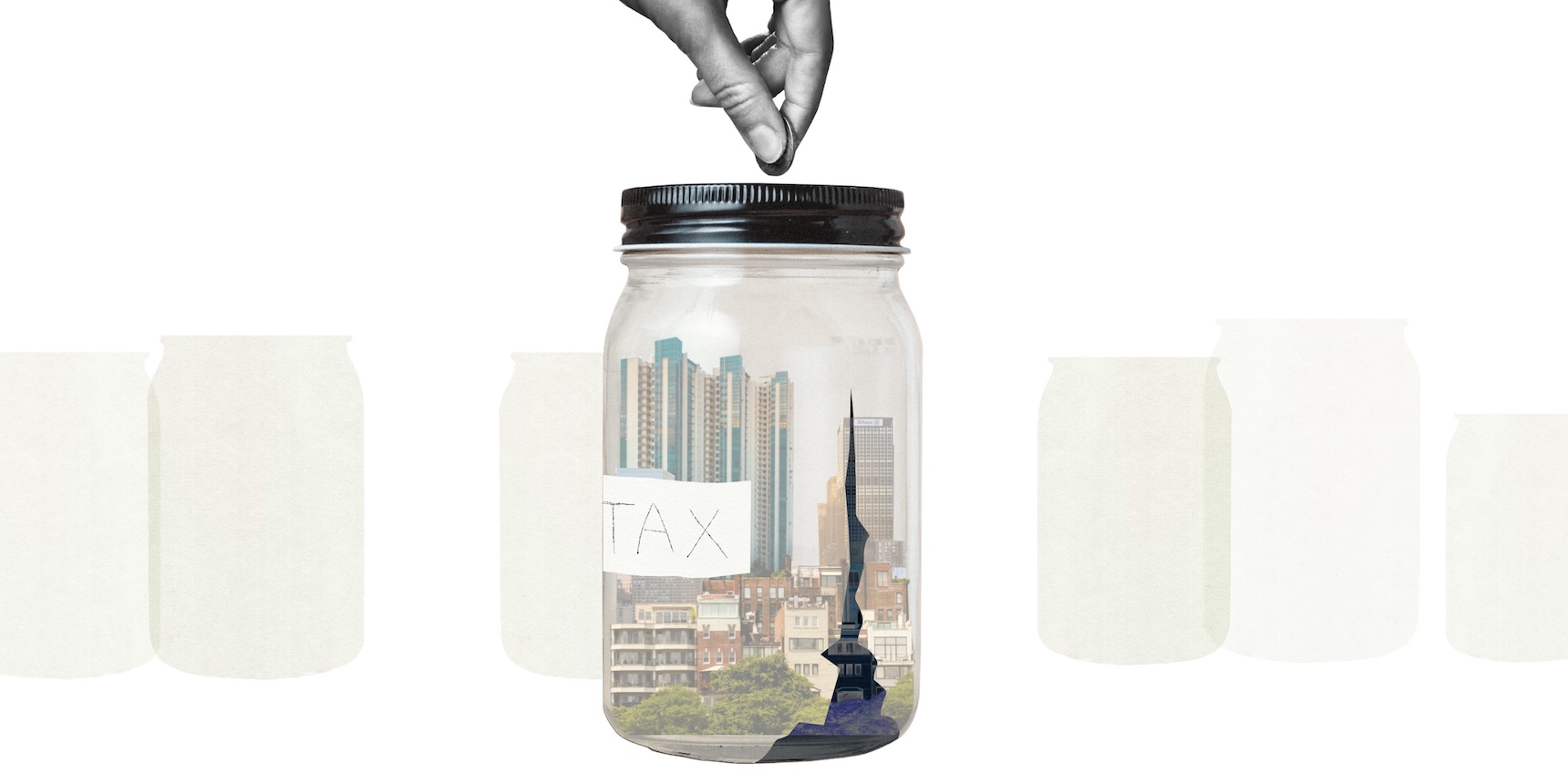

Armenia’s government has limited an income tax refund program in Yerevan with the aim of boosting construction in Armenia’s regions.
The 2015 decision stipulates that when purchasing an apartment directly from a developer, people can receive an income tax refund in the amount of the interest on the mortgage. The scheme aimed to create a stable and effective demand for new housing as well as giving many first-time buyers an opportunity to own a home.
According to the Minister of Finance, Tigran Khachatryan, the number of people who participated in the program increased sharply between 2019-2021. In 2015-2017, around 800 citizens benefited from the program annually, and the annual increase of funds allocated to this program from the state budget was about 1 billion AMD. By 2020, 5,200 new beneficiaries were registered and the amount of the refund was 13.3 billion AMD. In 2021, the total number of beneficiaries of the program exceeded 17,000, and the cost to the state budget was 22.7 billion AMD.
In the first quarter of 2022, 16.2 billion AMD, or almost $34 million USD of income tax from the state budget was returned to those using the mortgage loan program; (this increase, compared to the same period last year, was 66.3%).
In order to qualify for the program, the price of apartments to be purchased or built cannot exceed 55 million AMD, and the quarterly total of the interest paid and returned cannot exceed 1.5 million AMD.
The same taxpayer, regardless of whether they are a borrower or co-borrower, can take advantage of an income tax refund once. The law is not retroactive — if a person has signed an agreement by which they benefit from the income tax return program, they will continue to benefit from the program regardless of the amendments made to the law.
The Government’s Justification
The initial objective of the program was for social benefit, however, as Finance Minister Atom Janjughazyan announced in 2020, it was exploited by people with high incomes not to pay taxes.
In August 2021, the National Assembly made changes to the Tax Code, according to which limitations were put on the income tax refund program in Yerevan. After 2025, the program will expire in the capital.
While presenting the program during a government session, Minister of Finance Tigran Khachatryan stated that the program was initially adopted because of its economic significance.
“Since 2018, the exemption system has been changed, making it more of a social support program,” explained Khachatryan. “It was determined that a person can use the program only once, and the price of an apartment that was purchased in order to receive exemption was limited to 55 million AMD.”
However, according to Khachatryan, the main volume of construction, which gained momentum as a result of the program, continues to be carried out in Yerevan. He said the “positive impact” on the housing construction outside of Yerevan because of this program, however, is negligible. “To date, the number of beneficiaries of the income tax refund for apartments built [in the regions] is only 7%,while the remaining 93% is in Yerevan,” he said, underscoring that this move will ensure more even development.
Prime Minister Nikol Pashinyan also stated that to maintain a balanced development of land in the country, the program should gradually be limited within Yerevan, in order to further promote construction in the regions.
According to the amendments made to the law, if a property is purchased or planned to be built in Zone 1 of Yerevan, a mortgage loan must be taken out by July 1, 2022. Within the same framework, a loan should be taken out by January 1, 2023 for Zone 2. A required condition for Zone 3 is that a loan has to be taken out by July 1, 2023, followed by a 1.5-year grace period. For the remaining zones of Yerevan, there’s a precondition that a mortgage should be taken out by January 1, 2025. In other words, as of the time of writing, a citizen cannot buy an apartment with a mortgage in a newly built building in downtown Yerevan and take advantage of the income tax return program.
A Mortgage After 20 Years of Renting
Evelina Atoyan and her family rented their home for 20 years. Although they had their own house in Vanadzor, they had to move to Yerevan because they couldn’t find a job in their hometown.
“Since my husband and I were both employed, it was more beneficial to buy a house with a mortgage than to live in a rental,” Atoyan explains. “We applied to several banks to understand their conditions, to see if our incomes were sufficient or not, and what documents we needed. Thanks to the conditions under the income tax return law, our finances already allowed us to both pay rent and take out a mortgage loan.”
The loan was approved on January 8, 2020, on Evelina’s birthday. After construction and renovation, the apartment was completed. Evelina, her husband Hamlet, and their two daughters celebrated moving into their apartment in August 2021, which also happened to be the same day as their 20th wedding anniversary. Over the course of 20 years, they had been living in 15 different apartments. Atoyan states that without the income tax return program, their dream of owning an apartment would not have come true. If the adopted law had a retroactive clause, they would not have been able to pay the loan now or resolve other household issues.
As for limiting the income tax return program and moving it to the regions, Atoyan believes that the problem will not be solved just by constructing buildings: first of all, people need jobs with decent salaries so they don’t need to move to Yerevan. Evelina is happy that new building complexes will be built in the regions, but thinks they should not be built at the expense of canceling the program in Yerevan. Atoyan does not agree that the main beneficiaries of this program are those with high incomes, and doesn’t consider it fair to exempt them from paying income tax. According to her, if there are two or more registered workers in the family, even with a low salary, then it should still be possible to take out a mortgage loan.
Rising Housing Prices
According to the Statistical Committee of Armenia, from January to May 2022, housing construction amounted to 54.9 billion AMD, or almost half of the total construction (49%). This is a 122.5% increase from the previous year.
In the month of May alone, construction companies billed 14.3 billion AMD, which is 103.6% more compared to the same period last year. In May of 2022, construction made up 46.5% of the total building taking place. That is double the construction carried out with state budget funds. For comparison, construction carried out with state budget funds made up 22.7% of the total development taking place.
After limitations to the law were put in place in Yerevan, apartment prices in newly built residential complexes gradually increased. In the third quarter of 2021, the average market value of real estate in downtown Yerevan was 636,800 AMD per square meter. In the third quarter of 2022, it was 745,900 AMD. In Arabkir, a district of Yerevan, the average market value of real estate per square meter in the third quarter of 2021 was 462,400 AMD, but in the third quarter of 2022, it was 530,500 AMD.
This did not prevent the purchase of apartments. According to the Cadastre Committee, in the third quarter of 2022, 4,071 transactions of buying and selling apartments in multi-apartment residential buildings were carried out in Armenia (in the same period in 2021 the number of transactions was 4,665), in the second quarter – 4,935 (in 2021 it was 3,901). Most of the transactions were made in Yerevan. In particular, in the third quarter of 2022, 2,779 transactions were carried out in Yerevan (in 2021 it was 3,115), in the second quarter – 3,343 (in 2021 it was 2,572).
Most real estate transactions took place in the Kentron and Arabkir districts of the capital, where the law introduced restrictions first.
Thus, in the third quarter of 2022, 559 transactions were carried out in Arabkir (in 2021 it was 568; in 2020 it was 577; and in 2019 it was 471), in the second quarter – 612 (in 2021 it was 460). 457 transactions were carried out in the middle of the third quarter of 2022 (655 in 2021; 339 in 2020; and 560 in 2019), 690 in the second quarter (360 in 2021).
What Do Experts Think?
Vahe Danielyan, Director of Kentron Real Estate Agency, believes that the restrictions of the income tax return program have not yet had a great impact on the real estate market. Danielyan states that house prices in downtown Yerevan have risen so much that it became legally impossible to apply to the program, since the price of an apartment cannot exceed 55 million AMD.
According to Danielyan, the changes made in the law have nothing to do with registered price increases in the real estate market. He considers the influx of emigres from Russia as the main reason for the increase in apartment rental and sales prices.
Danielyan also singles out the banking system which has begun to provide mortgage loans much more easily and has reduced the requirements for borrowers and co-borrowers as a contributing factor for the increase in demand affecting market prices.
He considers the changes made in the law to be necessary because construction in the regions also needs to expand. He emphasizes the fact that Armenia isn’t limited to the center of Yerevan and it is necessary to pay attention to regions as well.
Vladimir Harutyunyan, Director of Nor Tun Realty, welcomes the changes made in the Tax Code. He believes that these changes will boost construction in the regions. According to Harutyunyan, many residents in the regions are impatiently waiting for new building complexes to be built and to apply to this program.
According to Anahit Antonyan, a sales specialist at Luyser Residential Complex, there wasn’t a significant change in the selling process of apartments after amendments to the law were made. According to Antonyan, people are not well informed about the limitations of the program and many were concerned that after their loans were approved, they would not be able to use it, for example, until 2023.
Antonyan associates the increase in housing prices with more construction.
Real estate agent Andranik Harutyunov believes that the impact of the limitations put on the income tax return program will be noticeable only when the program stops operating in Yerevan. This impact will be seen within the context of construction when developers are no longer motivated to build residential complexes on the outskirts of Yerevan.
According to Harutyunov, there are a lot of vacant plots of land in Yerevan, however, they are not attractive anymore for developers since potential residential complexes there would have liquidity issues. Harutyunov also points out the multiplicative effect construction has, where the construction of one building has a ripple effect on various sectors of the economy, from builders and furniture makers to interior designers and profits for banks.
Atom Margaryan, an economist, and Head of the Innovative and Institutional Research Laboratory at the State University of Economics of Armenia, sees risks in this program.
He raises the issue that Yerevan has become a city-state where there’s a population overconcentration. Since there are almost no jobs in other regions, this has led to migration to the capital. Margaryan considers the justifications for the program as reasonable when it was being implemented. However, now he is convinced that the program is no longer justifiable and today, tens of billions of drams are already being redistributed from the budget, and it has become a business for a “certain type of class.”
He believes that the program should be accessible to socially vulnerable groups and that there should also be affordable interest rates.
“These limitations should have been put in place and the program should have been taken out of the capital. What is taking place now is that this program has enlarged the capital, the city is dusty, and everywhere you look, Babylonian towers are being built,” explains Margaryan, adding that having an apartment is a necessary but not a sufficient enough condition for a person to remain residing in the regions –– for that there must be jobs.
According to Margaryan, the biggest problem is that there isn’t any real social housing construction, and people with low incomes can’t take advantage of the program. Margaryan says that this program should be strictly targeted. Budget subsidies should be made for people whose incomes are low. This should be reflected in the yearly budget, for example, in the form of 2 billion AMD per year. Those with high incomes should be excluded from the tax return program.
Also see
Economy
The State Debt Is Approaching $10 Billion: How Manageable Is It?
Armenia's state debt is approaching $10 billion US, but to what extent is it manageable, and what risks does it have? Seda Ghukasyan explains.
Read moreArmenian Dram Strengthens Creating Problems for Local Businesses
The Armenian dram has been rapidly appreciating against the U.S. dollar for months, creating problems for local businessmen and entrepreneurs.
Read moreDiaspora Networks and Economic Development at Home: Three Points
Navigating through the complexity of the triangular dimension of identity, trust and engagement infrastructure is the key to diaspora networks, their connection with the home country, and economic development.
Read moreChallenges and Opportunities for Growing Industrial Hemp in Armenia
In 2021, Armenia’s parliament legalized the production and processing of industrial hemp. To date, six companies registered in the country have received licenses to begin production.
Read moreLaw & Society
Armenia’s New Gun Law: Risks and Advantages
A new law regulating the acquisition of arms and the sale and circulation of military products was adopted in Armenia. Astghik Karapetyan looks at the risks, dangers and advantages of the law.
Read moreArmenia’s New Anti-Corruption Court
Armenia’s new Anti-Corruption Court is now operational and will hear criminal cases on corruption and civil cases of confiscation of illegally obtained assets. Was the creation of a new court necessary and can it have an impact on the fight against corruption?
Read more“Smart” Barns Require “Smart” Calculations
Armenia’s government launched a state assistance program in 2019 for the creation of what they called “smart” barns to improve livestock care and increase milk production. Araks Mamulyan looks at the challenges and shortcomings.
Read more







